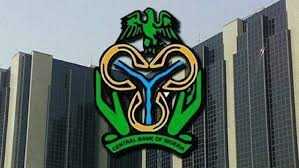Loan defaults rose sharply across all major borrower categories in the second quarter of 2025, with small businesses bearing the heaviest burden, according to the Central Bank of Nigeria’s latest Credit Conditions Survey (CCS).
Compiled from lender responses in June 2025, the report reveals that repayment performance deteriorated across secured, unsecured, and corporate loans, despite banks easing access to credit. Small businesses emerged as the most affected group, recording a steep decline in loan performance, with their default index falling to -7.2 in Q2 from 0.5 in Q1 — the sharpest quarterly drop among all borrower types.
Medium-sized Private Non-Financial Corporations (PNFCs) followed with a default score of -4.9, while large PNFCs and Other Financial Corporations (OFCs) reported negative balances of -4.8 and -4.7, respectively. The widespread decline suggests that broader economic pressures continue to strain cash flow and undermine repayment capacity, particularly in the business sector.
The rise in defaults coincides with a more relaxed lending environment. Banks expanded credit availability for secured, unsecured, and corporate loans in Q2, driven by improved economic outlook and evolving risk appetite. Yet, the easier access to loans did not translate into stronger repayment performance.
Analysts suggest that many borrowers may have overextended themselves or are contending with lingering economic challenges such as high inflation, weak consumer demand, and tighter liquidity — all of which are weighing heavily on loan servicing ability. The report warns that lenders are now walking a tightrope between growing their credit portfolios and maintaining asset quality.
While corporate borrowers drew most attention, households also showed signs of repayment stress. The default index for secured household loans dropped sharply from 3.9 in Q1 to -7.0 in Q2, signalling a spike in missed payments or restructured loans. Unsecured household loans, which had shown positive trends in recent quarters, slipped from 5.0 to -1.5 — the first negative reading in over a year.
The downturn in household credit performance points to shrinking disposable income amid sustained inflation and rising living costs. Although demand for short-term credit like personal loans and overdrafts grew during the quarter, interest in long-term products such as mortgages and credit cards declined, reflecting a more cautious approach among consumers.
Despite the uptick in defaults, lenders approved more loans across all categories in Q2, suggesting confidence in their credit assessment frameworks or a strategic push to grow loan books in a competitive market.
However, pricing trends tell a more nuanced story. For households, the cost of credit rose as interest rate spreads over the Monetary Policy Rate (MPR) widened for both secured and unsecured loans. In contrast, corporate borrowers benefited from more favourable pricing as spreads on business loans narrowed, likely to stimulate investment and ease operational liquidity.
The findings from the Q2 survey underscore a fragile economic recovery, where greater credit access is not yet translating into financial resilience. For Nigeria’s banking sector, the challenge in the coming quarters will be balancing loan growth with stricter risk management as both businesses and households continue to struggle under economic pressure.










